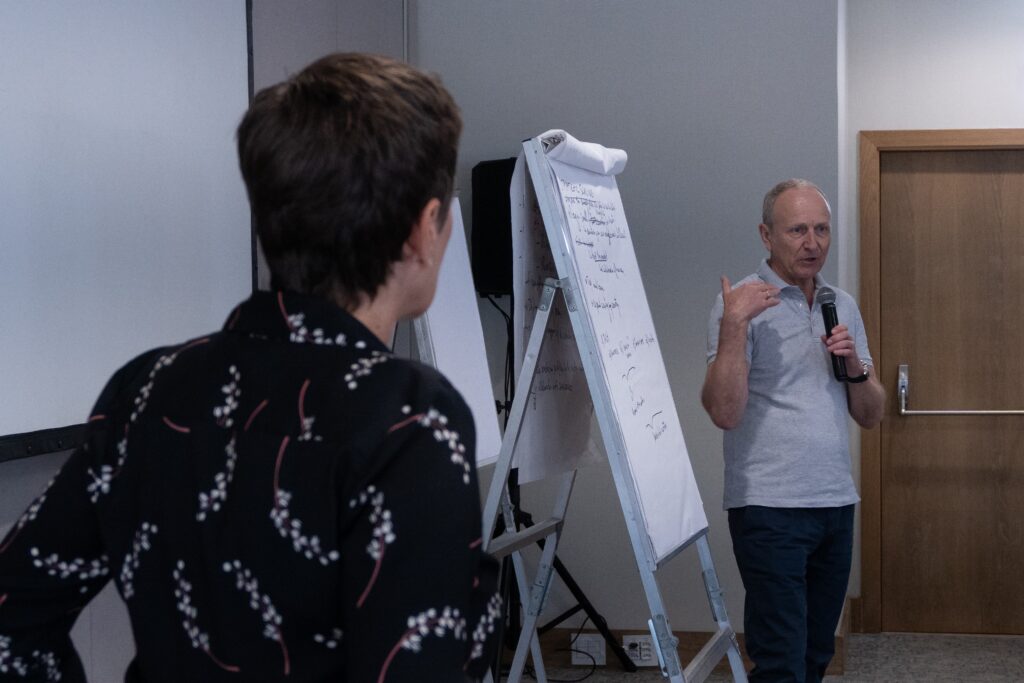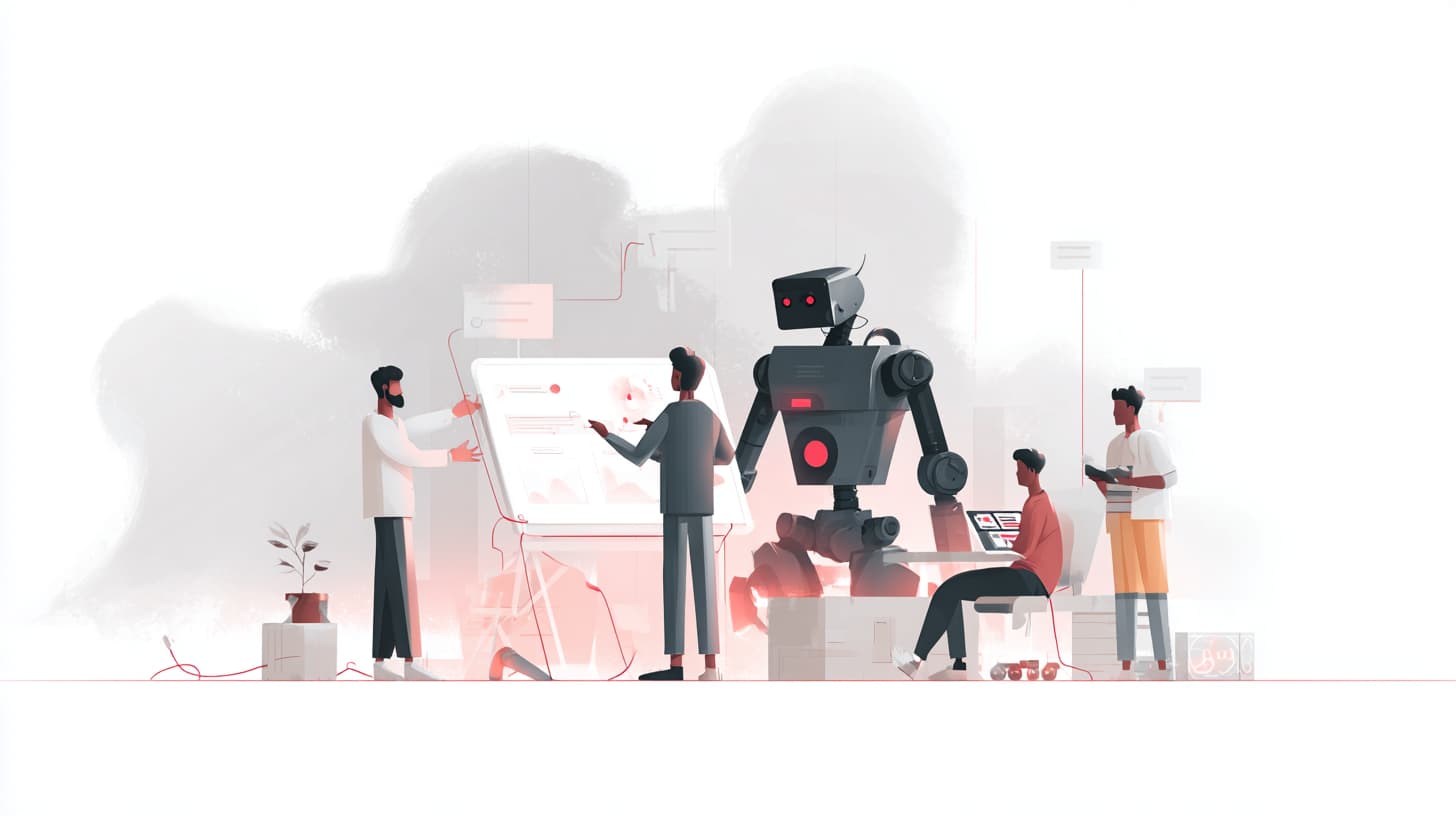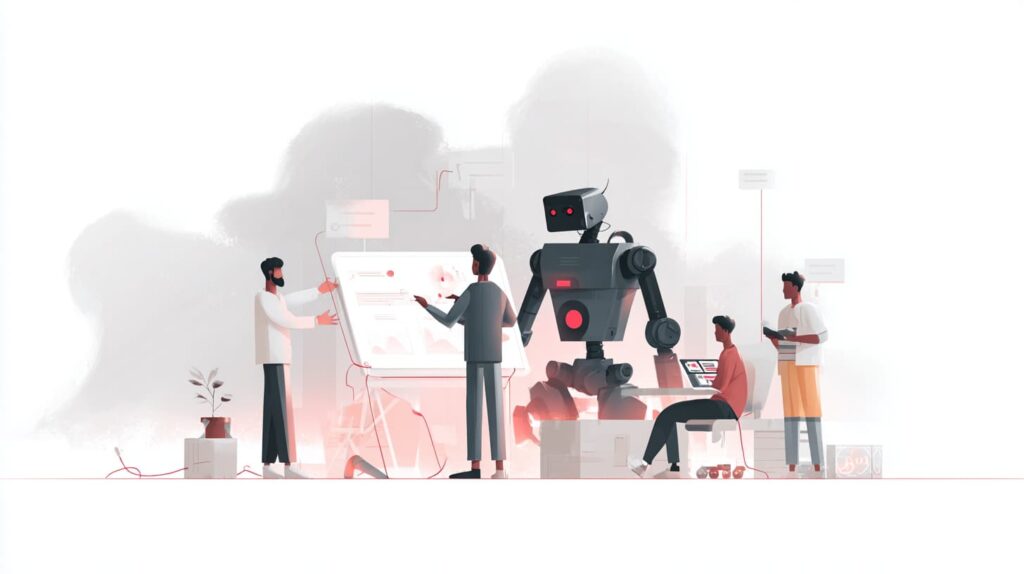By Lucas De Vivo and Marcus Couto
- The Cordence Executive Meeting, held on May 6–7 in Rio de Janeiro, brought together around 20 senior executives from 9 global management consulting firms.
- Cordence Worldwide is a network of independent consultancies that collaborate and operate through a global partnership approach.
- The goal of the event was to foster the exchange of experiences and future perspectives, strengthening the technical, methodological, and strategic foundations of the alliance — and, ultimately, delivering even greater value to our clients.
Over the course of two days, from May 6–7, 2025, the Cordence Executive Meeting brought together around 20 senior executives from 9 global management consulting firms in Rio de Janeiro. The event was designed to foster the exchange of experiences and future visions, with the goal of bringing even greater technical, methodological, and strategic strength to the alliance — and, as a result, to our clients.
Cordence Worldwide is a network of independent consulting firms that collaborate through a global partnership approach. We share values and expertise to create strategic solutions that deliver real competitive advantage to clients across the Americas, Asia, Europe, and the Middle East. With 60 offices in 19 countries, the network brings together more than 5,000 consultants, developers, scientists, and engineers.
Throughout the Executive Meeting — hosted by EloGroup for the first time in Rio de Janeiro — certain themes and expressions stood out in the conversations among participating leaders. Unsurprisingly, Artificial Intelligence was a key topic. Its impact and the remarkably rapid evolution of this technology in recent years represent an almost unprecedented phenomenon for clients and the broader market. The executives dove deep into the implications of this shift and how companies can unlock real value from AI while avoiding common pitfalls.
Frank Van Es, director at Dutch consultancy TwynstraGudde, acknowledges that “AI is one of the greatest drivers of transformation today. While there is still some hesitation and uncertainty around the topic, we see many opportunities,” says Van Es. “At TG, we believe AI enables us to reinforce our focus on human skills. In other words, by automating tasks and enhancing our analytical capabilities, we can dedicate more energy to what truly makes human work valuable: strategic thinking, creativity, and leadership.”
Uwe Michel, partner at Horváth, broadens the analytical perspective by highlighting his view that “AI is likely to replace activities traditionally performed by human consultants. Firms that manage to apply this technology in a distinctive way will increase their competitiveness and take the lead,” he states.
“AI has gained even more momentum since the previous edition of Horváth’s study,” says Michel, referring to the firm’s annual global CxO priorities survey. “What we’re seeing now is that companies are moving beyond the testing and pilot phases and shifting toward broader implementations. The biggest challenge is not technological, but organizational: there’s a lack of change management, low internal buy-in, and even a certain cultural resistance to AI, which slows down the pace of adoption.”

For Matt Klein, from North Highland, “the intersection between workforce and technology has been the primary point of transformation for our clients. It’s no longer possible to address one without the other,” he says. “That’s why we take a holistic view of transformation. Our focus is on creating sustainable value that lasts beyond our engagement. In other words, we aim not only to solve current challenges but to prepare organizations for what lies ahead.”
According to Eduard Dalmau, director at Spanish consultancy RocaSalvatella, there are currently four major transformation drivers shaping the market:
- Technological acceleration and AI: “The impact of artificial intelligence and digital technologies is reshaping every industry. These tools allow us to change how we deliver value, adapt our capabilities, and offer new services.”
- Agility with tangible results: “Clients are demanding faster, more concrete outcomes — less theory, more action. However, this is happening in the context of increasingly complex and technology-driven projects, which require new approaches to management and execution.”
- Sustainability and ESG programs: “Integrating sustainable practices is no longer optional — it’s imperative. Consultancies must embed these dimensions as a core part of their work.”
- Digital talent development: “With the AI revolution, continuously upskilling teams and developing new digital competencies is essential to keep pace with change.”
Meanwhile, Ridzwan Hamzah from Pemandu Associates, a consultancy based in Malaysia, highlights two key transformation drivers:
- Agility and speed in decision-making: “In an increasingly fast-paced environment, the ability to adapt quickly is critical.”
- Strategic partnerships among consultancies: “Given the complexity of today’s challenges, it’s rare for a single firm to have all the answers. That’s why collaborating with other Cordence firms is essential to deliver truly end-to-end solutions.”
Why do so many AI projects still fail?
When asked why many companies struggle to successfully implement AI projects—and what sets successful initiatives apart—Mark Miltenburg of State of Matter points to three key factors:
- Strong leadership sponsorship: “AI adoption must be embraced by senior leadership. It needs to become a clear strategic priority within the organization.”
- Clarity on business outcomes: “Implementing AI isn’t just about doing the same things faster. It requires rethinking business problems and using technology to fundamentally transform how they’re solved.”
- Incremental experimentation: “Instead of endless planning, the best approach is to start small—with quick experiments, testing and learning along the way. This agile ‘learn by doing’ mindset is what drives successful initiatives.”
Representing French consultancy Oresys, Florent Stetten Pigasse and Antoine Canonne emphasized the human element amid the rise of Generative AI and the importance of lasting, trustworthy transformation.
“Alongside the tech revolution, we’re also seeing growing demand for shifts in leadership culture—with a focus on employee engagement and satisfaction. It’s the human counterbalance to digital disruption,” says Pigasse.
“Artificial Intelligence is undoubtedly a dominant and highly dynamic force,” adds Canonne. “It’s reshaping our market and our clients’ businesses. They turn to us to support them through this transition—but that doesn’t mean we should abandon the traditional pillars like organizational redesign, process restructuring, and the human aspects of change. We believe all these levers must be activated in parallel to deliver truly effective and sustainable transformation.”
The importance of the Cordence Executive Meeting in Brazil
Rafael Clemente, CEO of EloGroup, spoke about the significance of hosting executives, leaders, and representatives from Cordence Worldwide’s partner firms:
“We had the opportunity to strengthen our relationships with each of the companies and to better understand their strategies for this year and beyond.”
“For us, it’s truly remarkable to see how Cordence has helped us scale our ability to serve not only national clients but also multinationals on a global level. This has completely elevated our reach and impact,” says Clemente.
For Jill Jacques, Director of Cordence Worldwide, EloGroup’s entry into the alliance—as the Latin American representative—has been incredibly valuable:
“When EloGroup joined, we saw a vibrant firm focused on combining data and AI within a business consulting context,” she states. “There’s also a strong entrepreneurial spirit that really accelerates growth.”
Jacques adds that EloGroup’s contribution goes beyond consulting expertise:
“They’ve brought a new global perspective, diversity, and a fresh way of thinking to the network as a whole.”
Davi Almeida, Partner at EloGroup, sees the alliance as a gateway to new growth opportunities, particularly in today’s economic context:
“We want to connect with different realities and possibilities, especially to give our consultants the chance to engage in international projects and challenges. We brought members of the Young Professionals Network (a Cordence group that brings together emerging talent across firms) from EloGroup, and they were able to actively participate in the discussions,” he explains.
Almeida also shared details about the “Pressure Cooker”, a client case-solving session in which YPN members worked alongside consulting firm leaders:
“We selected a client of ours currently exploring international expansion. We built a case context, and all the CEOs contributed their perspectives on how the company could scale its operations globally,” he says.
The discussion was well received and led to meaningful follow-ups: even after the event, two additional meetings were held—one focused on the life sciences sector (pharmaceuticals, cosmetics, and medical devices), and another on technology, data, and artificial intelligence, exploring hybrid models of collaboration.

A snapshot of the consulting market
To conclude, Davi Almeida highlights key discussions centered around a report on the consulting market in 2025. The document reinforces what executives had already emphasized: clients are being driven to invest more in order to sustain their growth ambitions. Technology remains essential—but it’s increasingly clear that it’s not enough on its own. As a result, expectations are rising that artificial intelligence will profoundly transform consulting services in the near future—within one to two years—making them not only more effective, but also more accessible.
Global demand for technology services remains high, fueled by the changing profiles of traditional buyers and the growing complexity of challenges, which now require multi-faceted, multi-modal solutions. In this context, clients are not just seeking expertise—they want real impact and innovation, which are critical to justify their investments.
Ultimately, what clients truly expect is to work with partners who listen, understand their needs, and can make things happen. This is where smaller, more innovative firms gain an edge—through their adaptability, active listening, and executional agility.
“There were some concerns about a slowdown in the industry between 2023 and 2024,” says Almeida. “But looking ahead to 2025 and beyond, the outlook is highly optimistic—with strong growth expectations and intense demand for AI-driven solutions, especially autonomous agents. What’s very clear in the market is that many companies don’t know where to begin their AI journey. That’s where EloGroup stands out. Our approach is centered on empowering clients—building the capabilities they need to bring technology closer to their business challenges,” he concludes.
LUCAS DE VIVO is a Writer for EloInsights
MARCUS COUTO is a Senior Writer and Editor for EloInsights











